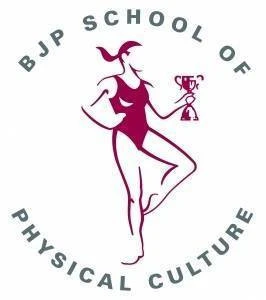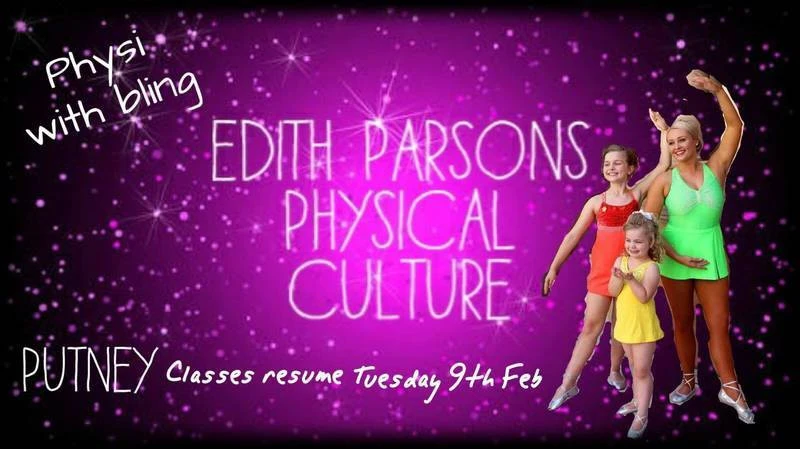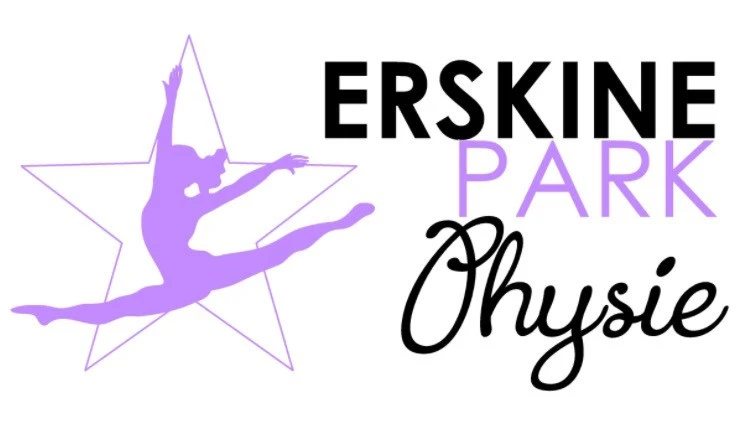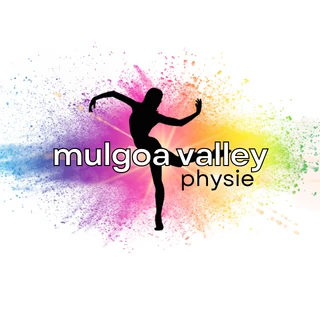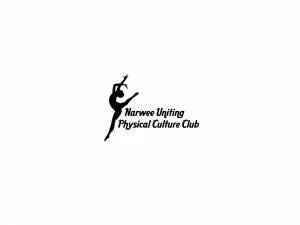Physical Culture (Physie) Associations for Kids - Western Sydney
Best match results for physical culture (physie) associations for kids in Western Sydney + 5km.
Westside Physie is a not-for-profit community club what we offer our members: Affordable class/term fees (funds raised are put back into the club) Low registration fees as compared to other dance schools. Improve confidence and develop a sense of achievement. Learn strength, good posture, fitness, flexibility, balance & coordination. A family friendly club within the Maraylya/Box Hill/Oakville vicinity and surrounding suburbs. Fun, upbeat, pop music is the soundtrack to a sport that fuses... Read more
Other related businesses in and around Western Sydney
Kids Trial Offer: 4 classes plus uniform $39.95
Give your Child the GIFT of CONFIDENCE! We have a special introductory offer that will give your child a start in our karate classes without having to commit to anything long term. KIDS TRIAL OFFER: Get 4 Classes plus a FREE Karate Uniform Only $39.95 (total value $144) We want to make it as simple and easy for you as possible. Come and meet our instructors, have a look at our classes, and take advantage of our trial offer to see how your child will enjoy our classes. You will see a difference in their focus, listening and attention skills within just a few lessons and they will learn safety awareness and bully busting techniques that will empower them and build their confidence. Classes are limited to 12 so that your child will gain the maximum benefits of learning karate. There's no obligation to join after the trial offer. Here's some more information on what karate training with our club will help achieve within your child. We offer a welcoming, family-friendly environment, instructors and culture that makes our Academy a highly regarded school in the martial arts community. Before they even throw a punch, all children are taught the very basics of confidence and self-worth, including holding eye contact, vocal training, stance and posture. The progressive curriculum evolves to help creating a more disciplined and focused child full of self-respect and respect for others. Introduction to themes including: What to do in an emergency, stranger danger, street awareness and bully busting.
Welcome to Epping Physie, we are a not-for-profit community club. Our National body, the Bjelke Petersen School of Physical Culture, has a long and proud history of over 125 years in Australia promoting a healthy mind in a healthy body. In Physical Culture or Physie (pronounced fizzy) we combine elements of aerobics, ballet, jazz, contemporary and hip hop. Dance routines are age appropriate and choreographed to contemporary music. Physie is a dancesport for girls and ladies from 3 years of age. Physical... Read more
Fun, upbeat, pop music is the soundtrack to a sport that fuses dance styles such as jazz, ballet, hip hop, contemporary, aerobic dance and even yoga! Our innovative choreography changes annually and is designed for maximum variety and fun. Physie (also known as Physical Culture) is the perfect combination of movements designed to increase strength, fitness and flexibility. The benefits for your daughter are increased co-ordination, brain development and confidence. Physie is a synchronised, team-based... Read more
First lesson free!!!
New to Physie? Come down to any class from the 12th Feb 2019 to receive a free trial lesson! Come and see what it’s all about!
Putney Physical Culture Club affiliated with the Edith Parsons School of physical Culture. Our instructress Mrs. Carolyn Frame has over 40 years experience teaching and runs a small but successful club that is focused on fun, fitness and family. Classes are held on Tuesday afternoons and are suitable for all ages! from 3-73! Read more
Physie is a dance sport which combines a range of movement skills including basic ballet, aerobics, dance, gymnastics and pilates, into one fun sport! Physie is made up of marching and several exercises that are choreographed to modern music according to age and ability, promoting fitness, flexibility, confidence, friendship, teamwork and good sportsmanship. Physie is open to all girls and ladies aged 2 and up. Erskine Park Physical Culture & Dance is an affiliated club of Western Zone Physical... Read more
Physical Culture or "Physie", is a unique competitive sport combining dance, floor and standing exercises for girls and ladies aged from 3 years. Based on basic ballet and modern dance, Physie is great for physical fitness, flexibility, coordination and posture, while building confidence and making new friends. Generations of Australian women from various backgrounds and of all abilities, love being a "Physie girl". Throughout childhood, study, having children and grandchildren, combined with... Read more
Physical Culture, or Physie (pronounced ‘fizzy’) is a sport for girls and women from 3 years up which aims to build confidence, good posture, strength, fitness, flexibility, co ordination and balance through a regular program of exercise and dance. The syllabus, updated annually, is performed to modern music and comprises standing and floor exercises, aerobic warm-ups, basic ballet and modern dance. Our choreography is age-appropriately designed to teach the relationship of music to movement, rhythm,... Read more
Casula Physical Culture Club FUN. FITNESS. FRIENDS. Come join us! Friends please share and get the word out about physie! #casulaphysie Casula Physical Culture Club Wednesday nights from 6pm Casula Public School Entry via Holland Cresent Casula, 2170 Girls and Ladies from 3yrs. Fitness. Friends. Fun. Come join us! Classes resume February 7th 2018. #physie #physiegirls #physielife #casulastars #casulaphysie #casulacrumbles #burnsphysie Burns Physie was founded in 1968 to offer... Read more
PHYSIE - A FUSION OF DANCE & SPORT Fun, upbeat, pop music is the soundtrack to a sport that fuses dance styles such as jazz, ballet, hip hop, contemporary, aerobic dance and even yoga! Our innovative choreography changes annually and is designed for maximum variety and fun. Unlike some ballet and dance studios, BJP Physie focuses on developing the self-esteem of its students. By teaching them to have a positive relationship with their bodies, we help students blossom with confidence and self-assurance. Balance,... Read more
- Holy Family Primary School, Luddenham, NSW
- Business can travel to you
Physical Culture (or Physie for short) is an inspiring dance sport for girls and women of all ages. Held in dance studios across the country, Physie is a perfect blend of Dance and Fitness. A unique dance style incorporating movements from Ballet, Contemporary Dance, Yoga and Pilates. Professionally choreographed dance routines increase core strength, coordination, fitness and flexibility. EP Physie girls show strength, poise and elegance simultaneously. Mulgoa Valley Physie is run by dedicated... Read more
Physical culture classes for girls aged 4 to ladies. Classes Monday and Tuesday from 4:30PM Australian Air League Hall 7 Bryant st Narwee. New members your first class is free so come on down and give it a try! Physie is great for strength, fitness, co-ordination, flexibility and self discipline and most of all...it's fun! Read more
Little Kickers teaches fundamental football techniques and elementary life skills in a vibrant, group play environment. We give your children a positive introduction to sport by teaching high quality football (soccer) skills in a friendly, pressure-free environment. There are four different classes tailored specifically to the needs of children between 18 months and 7 years of age. However, we have two core beliefs that we take into every session. Firstly, we believe in something we call Play... Read more
A fusion of dance and sport. Fun,upbeat, pop music is the soundtrack to a sport that fuses different dance styles together. For girls and women from age 3 to 63 and beyond. Come and join in it's a great way to stay fit, meet new friends and have lots of fun. Proudly affiliated with BJP Read more
At Caretodance Bambini in Balmain we aim to teach the fundamentals of general dance for boys and girls which includes Ballet, Jazz, Funk and Hip Hop but our main emphasis is on having fun and letting your child develop at their own pace in a creative and supportive environment. Each class strives to enhance your child’s coordination, gross motor skills, rhythm, spacial awareness and musicality. Your child will also develop listening skills, learn how to follow directions and learn how to work together... Read more
Capoeira Angola is an Afro-Brazilian art form that combines elements of martial art, music and dance. Recognized a world Cultural Heritage of Humanity by the UNESCO in 2014. For promoting worldwide mutual respect and social cohesion. Read more
First lesson FREE to new members
Come & have a go - every new member will receive their first lesson free. Girls are often shy about trying something new so this is an ideal way of learning what physie is & sometimes they see a friend at physie or they will make a new friend
Forza Jiu Jitsu is a martial arts gym teaching Brazilian Jiu Jitsu (BJJ) and Kickboxing in the Inner West Sydney suburb of Ashfield. We have built a safe friendly environment to learn and train Brazilian Jiu Jitsu both kids and adults and kickboxing for adults. Our experienced instructors catering not only to create championship competitors but also to people looking for a new hobby or simply to improve their fitness. We teach the martial arts style Brazilian Jiu Jitsu (BJJ). A grappling style... Read more
Physie is fun. It's social. It promotes fitness and a general sense of well-being, and self-worth. The Australian Physie and Dance Association(APDA) aims to bridge the gap between traditional school of physie and the world of contemporary dance, to create an innovative dance, sport that reflects physie and dance for the 21st century. Read more
Physie is dance with a difference and is a competitive sport. It is choreographed exercises to modern music that combines elements of dance, ballet, yoga and Pilates. Members are taught a new syllabus of age specific routines each year which are then performed at individual and team competitions (non-compulsory), which helps promote fitness, flexibility, coordination, good posture, core strength, club spirit, confidence and good sportsmanship. Read more
We are a Physical Culture club located in Lugarno, Sydney. Physi is a competitive sport for girls aged 3 and up. Physi promotes fitness, flexibility, co-ordination, club spirit, fun, confidence and good sportsmanship. It’s based on basic ballet, modern dance and pilates. Physi includes a combination of dance, floor and standing exercises focusing on posture, positions and technique. We currently have classes for girls aged 3+, and even a ladies class. Come and see what its all about! Read more









